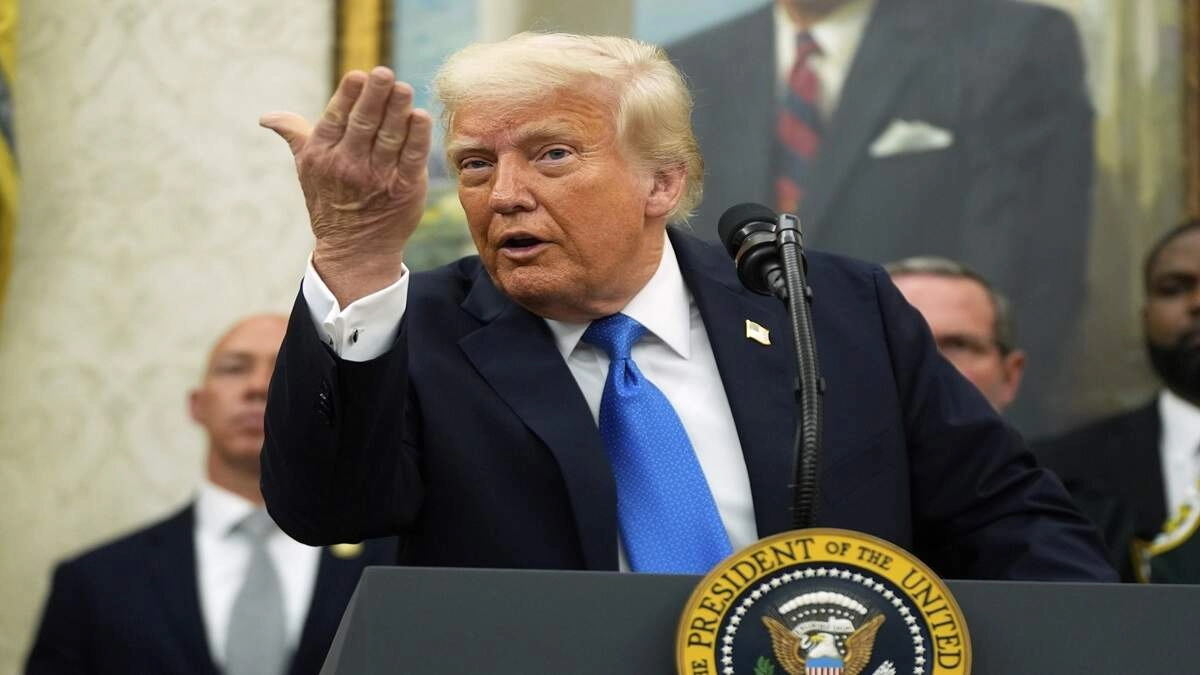Former President Donald Trump recently expressed his views on tariffs, claiming that they are a driving force behind America’s economic resurgence. During a speech, he stated that these tariffs are not just beneficial but are integral to making America “great and rich again.” Trump’s rhetoric emphasizes the notion that imposing tariffs on imported goods protects American industries, supports job creation, and fosters a competitive environment for domestic businesses. He believes that by leveling the playing field, the U.S. can enhance its economic standing and ultimately benefit the average American.
In his remarks, Trump also referred to the United States as the “hottest nation,” a phrase that underscores his belief in the resilience and potential of the American economy. He argues that the country is experiencing a renaissance of sorts, driven by policies that prioritize American interests. This assertion reflects his administration’s approach to international trade, where he often criticized previous trade agreements for being unfavorable to American workers. By implementing tariffs, Trump contends that the U.S. can reduce trade deficits and encourage more manufacturing within its borders.
Critics, however, have raised concerns about the long-term impact of such tariffs. While proponents argue that tariffs protect local industries, opponents claim that they can lead to increased prices for consumers and retaliatory measures from other countries. The debate over tariffs is complex, with many factors at play, including global supply chains and the interconnectedness of modern economies. Nevertheless, Trump’s confident assertions about tariffs and their role in enhancing America’s economic status resonate with a significant portion of his base, who view these policies as a necessary step to reclaiming American economic dominance.
As the discussion around tariffs continues, it remains to be seen how these policies will shape the future of trade relations and economic growth in the United States. The ongoing dialogue reflects a broader conversation about nationalism in trade policy and the balance between protectionism and free trade. Ultimately, Trump’s stance on tariffs is emblematic of his broader economic philosophy, which prioritizes American interests and aims to reinvigorate the nation’s manufacturing sector while positioning the U.S. as a leader on the global stage.




